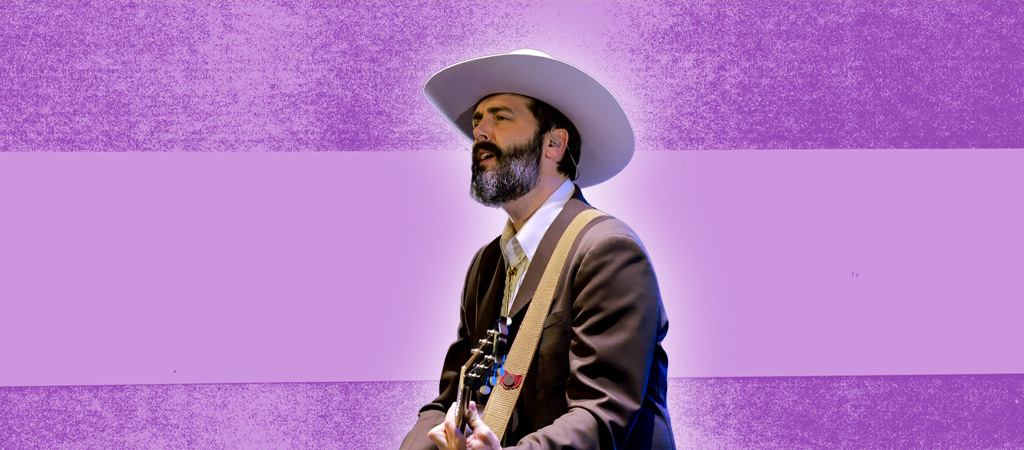Mon - Fri 8:00 - 6:30
Mon - Fri 8:00 - 6:30
 On HALO
On HALO
6 hours ago

As a music critic, I’ve always been fascinated by “popular but not famous” bands. The type of act that manages to achieve tangible success without exactly becoming a household name. For years, these bands typically derived from genres marginalized in the mainstream — metal, prog, the jam-band scene, and so on. But in the streaming age, “popular but not famous” acts have become more common across the board, as it’s now easier to quantify popularity (streaming numbers, ticket sales, social media followers) and also harder to achieve true cultural ubiquity.
In the indie-rock space, the defining example of this phenomenon for me is the Los Angeles group Lord Huron. Formed in 2010, they have made five albums, including the forthcoming The Cosmic Selector Vol. 1, due July 18. It’s possible you have heard of them, but I bet it’s more likely that you have heard them without knowing that it’s Lord Huron. Their most streamed song is “The Night We Met,” a dreamy country-rock ballad that closes their second record, 2015’s Strange Trails. But it didn’t reach a mass audience until two years later, when it was featured on the much-watched Netflix teen drama 13 Reasons Why. At that point, “The Night We Met” entered the Billboard Hot 100 on the way to being certified triple platinum by the Recording Industry Association Of America, denoting sales of more than three million units.
But that was just the beginning. As I type this, “The Night We Met” has more than 3.1 billion streams on Spotify. (The specific streaming platform matters for reasons I’ll explain in a minute.) An additional version recorded as a duet with Phoebe Bridgers has been played more than 325 million times, which pushes the overall number to nearly three and a half billion spins.
To put those numbers in perspective, it’s helpful to compare them to other songs typically regarded as the biggest rock anthems of the 21st century by indie-adjacent acts. I recently wrote about “Mr. Brightside,” a defining jock jam of the modern era by one of the best-known arena-rock bands. That song has almost 2.7 billion streams. “Seven Nation Army” by The White Stripes also has bulletproof “sports song” status — it has just under 2 billion streams. Arctic Monkeys, the acknowledged champs of British rock in the past 20 years, clocked more than 2.6 billion streams for their biggest hit, “Do I Wanna Know?” (A TikTok craze a few years back also propelled the lesser known “I Wanna Be Yours” to 3.1 billion plays.)
As it currently stands, “The Night We Met” is one of Spotify’s Top 30 most popular songs ever. Which means Lord Huron, on this one song at least, outperforms practically every other band (or pop singer or rapper) you can think of. The rivals to “The Night We Met” on Spotify include the top songs by two of the biggest pop-rock institutions of the century, Coldplay (“Yellow,” just over 3.1 billion streams) and Imagine Dragons (“Believer,” nearly 3.5 billion). The only band that decisively outpaces them is another “popular but not famous” LA group from the 2010s, The Neighbourhood, whose LGBTQ+-themed 2013 hit “Sweater Weather” presently sits at almost 3.9 billion streams.
What is going on here? “The Night We Met” is quite pretty and pretty likeable. It also sounds like a million other countryish, reverb-heavy indie-rock songs that don’t have close to 3.1 billion streams. Though, maybe, that’s the point.
The most common explanation for the success of “The Night We Met” is the song’s prominent placements in the first and second seasons of 13 Reasons Why, a controversial series about teen suicide that briefly captured the zeitgeist in the late 2010s. In the show, “The Night We Met” is practically its own character, acting as a nostalgic callback for two of the main characters. It is essentially framed as “The Most Beautiful Love Song You Have Ever Heard,” and for the show’s young audience — who might not have been familiar with the music that has obviously influenced Lord Huron — “The Night We Met” seemed to have hit that way.
But 13 Reasons Why ended five years ago. And “The Night We Met” has clearly escaped containment from that massive but still niche audience. It not only hasn’t faded in recent years, it has surged. In January of 2023, I noted that it had 1.2 billion streams , and that Lord Huron overall had close to 11.8 million monthly listeners. They have almost tripled both numbers since then.
This month, following a spring tour celebrating the 10th anniversary of Strange Trails, they begin a run of shows in arenas and amphitheaters, including a July 30 gig at Madison Square Garden with Waxahatchee (a “famous but not quite as popular” band) opening. And while their mastermind Ben Schneider maintains a low profile — good luck finding much in the way of press about his band — he’s definitely broken into elite levels of exposure in other ways. Kristen Stewart makes a cameo on one song from the new record. And the promotional bio was written by none other Norwegian celebrity author Karl Ove Knausgård. (His take on the album: “It ought to crush us, for we are so obviously nothing, a microscopic anomaly of flesh and blood in an infinite, black and lifeless space, but it doesn’t crush us. It is terrifying, this black abyss with tiny pinpricks of light that we live at the edge of, but it is also beautiful.” Leave some adjectives for us poor working rock critics, Karl!)
Knausgård, naturally, discovered Lord Huron on Spotify. Speaking of Spotify: There’s evidence that “The Night We Met” is uniquely suited to that streaming platform. While the song does gangbusters inside that walled garden, it appears to do less well at Apple Music, which just announced their Top 500 most streamed songs. Coldplay and Imagine Dragons, predictably, show up multiple times on that list, and “Sweater Weather” comes in at an impressive No. 154, two spots higher than “Bohemian Rhapsody.” But “The Night We Met”? Nowhere to be found.
Surely that discrepancy can be partly attributed to showing up on the right playlists over at Spotify. But I wonder if something in the Spotify algorithm favors Lord Huron — or if Lord Huron, inadvertently (or not), makes music perfectly suited for gaming the system. I have listened to The Cosmic Selector Vol. 1 several times in recent days, as well as the older Lord Huron albums, and I’m struck by how much the music sounds remarkably similar to other bands I like. They might very well be the most “sounds like other bands I like” band I have ever heard. Listening to Lord Huron is like condensing nearly 70 years of rustic, rootsy rock music into easily digestible four-minute packages. You can hear Sun Sessions era Elvis and Dylan’s Time Out Of Mind period in there. And the first three My Morning Jacket records and the first two Fleet Foxes albums. And flashes of Wilco and Grizzly Bear and The Lumineers. And even the country and Americana artists that came after Lord Huron, like Zach Bryan or Tyler Childers. Anyone who goes to Spotify to hear those artists (and many others) could be credibly pointed to Lord Huron as a “recommended if you like” option.
When AI band The Velvet Sundown had their 15 minutes of infamy last week, I thought immediately of Lord Huron. Not only because they (it?) sort of sound like Lord Huron, but also because of Lord Huron’s own flesh-and-blood AI tendencies. I like “The Night We Met,” but if you told me that it was produced by artificial intelligence instructed to reconfigure the two most popular songs by Band Of Horses, “Funeral” and “No One’s Gonna Love You,” I’d believe it.
Let me reiterate that I like listening to this band. If the worst that can be said of Lord Huron is that they are very derivative of bands that don’t stream nearly as well, that shouldn’t completely overshadow the obvious craft that Schneider and company apply to the records. (His ability to create elaborate backstories for songs and the impressive scale of their live shows also dispel any overly reductive “generic” charges.) Best of all, they are — for now at least — a sign that humans are still better than robots at integrating preexisting sounds into new songs. I want my enjoyably imitative folk rock made by people, not machines.